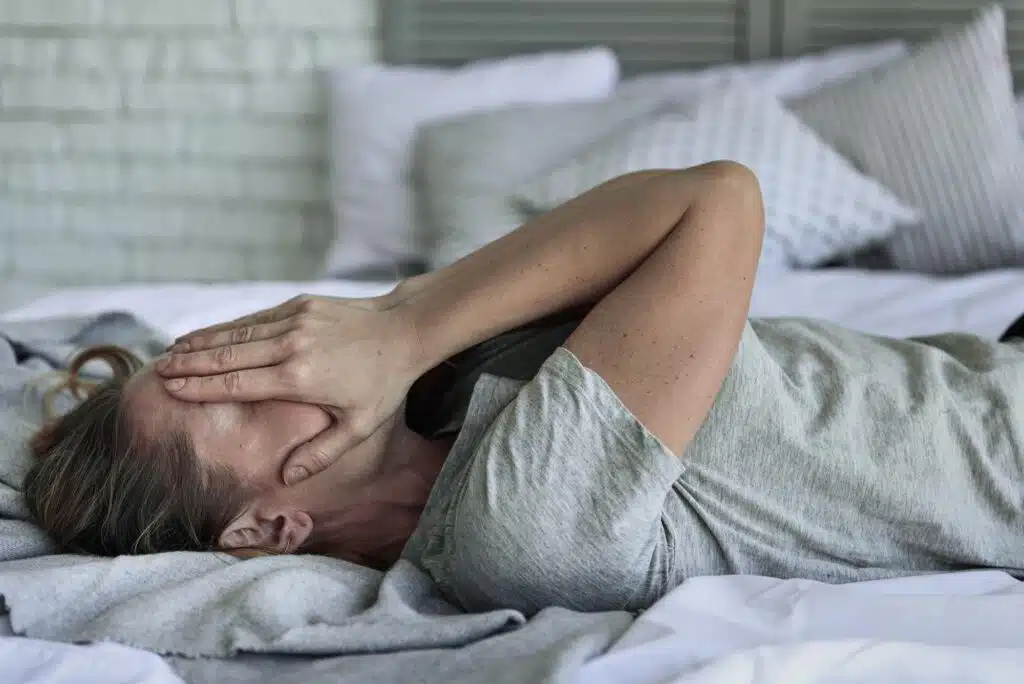Understanding the Risks Involved in Detoxing at Home
Detoxing at home might seem like a private, convenient way to break free from substance dependence – but it’s a decision that carries serious risks. Home detoxification is the process of stopping substance use and managing withdrawal symptoms without professional medical supervision.
Many people attempt to detox at home from various substances, with alcohol and benzodiazepines being among the most dangerous to quit without medical support. These substances can create severe physical dependence, making the withdrawal process potentially life-threatening.
Key risks of unsupervised detox include:
- Severe physical symptoms
- Psychological distress
- Medical complications
- Higher chance of relapse
- Potential fatal outcomes
The body develops significant chemical dependencies during prolonged substance use. When you suddenly stop using these substances, your system can react violently as it struggles to readjust. This adjustment period isn’t just uncomfortable – it can be dangerous.
Substance use disorders, particularly those involving alcohol and benzodiazepines, require specialized medical care during detoxification. These conditions affect your brain chemistry in complex ways, making professional supervision essential for a safe recovery journey.
Your life matters too much to risk dangerous complications from home detox attempts. Professional medical support can make the difference between a successful recovery and a potentially life-threatening situation.
1. Severe Withdrawal Symptoms: A Major Risk Factor
Attempting to detox from alcohol or benzodiazepines at home can trigger dangerous withdrawal symptoms. These symptoms typically emerge within 6-24 hours after the last drink or dose.
Common withdrawal symptoms include:
- Tremors and shaking
- Severe anxiety and panic attacks
- Sweating and heart palpitations
- Nausea and vomiting
- Hallucinations
- Seizures
The most severe form of alcohol withdrawal is delirium tremens (DT), a potentially life-threatening condition that affects 5% of people going through withdrawal. DT can cause:
- Dangerous shifts in breathing and circulation
- Severe confusion and disorientation
- High fever
- Grand mal seizures
- Intense hallucinations
- Heart attacks or stroke
Early recognition of withdrawal symptoms is crucial for survival. Warning signs often start mild but can escalate rapidly within hours. Changes in mental status, severe tremors, or the onset of hallucinations require immediate medical attention.
The risk of severe complications increases with:
- Previous withdrawal experiences
- Long-term heavy substance use
- Underlying health conditions
- Poor nutrition status
- Advanced age
These symptoms can be unpredictable and potentially fatal without proper medical supervision and intervention.
2. Lack of Medical Supervision: Why It Can Be Dangerous
Attempting a medical detox at home without professional supervision creates significant risks that can turn life-threatening within hours. Medical professionals play a crucial role in monitoring vital signs, managing complications, and adjusting treatment protocols in real-time.
A professional treatment program provides:
- 24/7 monitoring of heart rate, blood pressure, and temperature
- Immediate medical intervention when complications arise
- Proper medication dosing and adjustment
- Access to emergency medical care
- Regular blood work to track electrolyte levels
Without medical supervision, dangerous complications can go unnoticed:
- Severe dehydration
- Electrolyte imbalances
- Seizures
- Cardiac complications
- Respiratory distress
The complexity of withdrawal requires specialized knowledge and equipment that isn’t available at home. Medical professionals use evidence-based protocols to ensure safety throughout the detoxification process, adjusting treatment plans based on individual responses and specific substance dependencies.
A medically supervised detoxification provides the safest path through withdrawal, with trained staff ready to address both expected and unexpected complications that may arise during this critical phase of recovery.
3. Increased Risk of Relapse: The Role of Structure and Support
Self-supervised detox methods can create a dangerous path toward relapse. Without structured support, individuals attempting to detox at home face significant challenges in maintaining their commitment to recovery.
The absence of professional guidance leaves people vulnerable to:
- Intense cravings without proper coping mechanisms
- Emotional triggers in familiar environments
- Limited accountability during critical moments
- Isolation from recovery-focused support systems
A crucial factor often overlooked in home detox attempts is the kindling phenomenon – a neurological process where each withdrawal episode becomes progressively more severe. This biological response makes subsequent detox attempts increasingly dangerous and can amplify the intensity of withdrawal symptoms.
Moreover, the lack of professional oversight during home detox can lead to severe adverse physical effects of alcohol misuse, further complicating the recovery process.
Professional treatment programs provide essential elements missing in home detox:
- 24/7 access to medical support
- Structured daily routines
- Evidence-based therapeutic interventions
- Peer support networks
- Tools and strategies for long-term recovery
Research shows that individuals who attempt home detox are significantly more likely to experience multiple relapses compared to those who seek professional treatment. These repeated cycles of substance use and withdrawal can lead to:
- Heightened withdrawal severity
- Increased risk of seizures
- Greater likelihood of developing post-acute withdrawal syndrome
- Compromised immune system function
Professional guidance plays a vital role in breaking this cycle by providing comprehensive support and evidence-based interventions tailored to individual needs.
4. Nutritional Deficiencies During Detox: An Overlooked Risk Factor
Trying to detox from alcohol at home can pose serious nutritional risks that many people overlook. Alcohol abuse interferes with the body’s ability to absorb and process essential nutrients, resulting in severe deficiencies that can become life-threatening during withdrawal.
Common nutritional deficiencies in alcohol use disorder include:
- Vitamin B1 (thiamine)
- Vitamin B6
- Vitamin B12
- Folate
- Zinc
- Magnesium
One particularly dangerous condition called Wernicke’s encephalopathy can develop from severe thiamine deficiency during detox. This condition affects brain function and can cause:
- Confusion and disorientation
- Loss of muscle coordination
- Vision problems
- Memory issues
Home remedies and natural detox methods often fail to address these critical nutritional needs. The body requires specific vitamin supplementation and monitoring during withdrawal to prevent serious complications.
Physical symptoms of nutritional deficiency during detox:
- Muscle weakness
- Tremors
- Heart rhythm abnormalities
- Seizures
- Cognitive impairment
Professional medical facilities, such as the Cedar Oaks Wellness Center, provide targeted nutritional support. These interventions help prevent dangerous complications and support the body’s healing process during detox. Self-detox attempts often miss these crucial nutritional aspects, putting individuals at risk for severe health complications. For those struggling with alcohol addiction, a safe and effective alcohol detox program can provide the necessary support and resources for recovery.
5. Mental Health Risks: The Need for a Supportive Environment During Detox
Detoxing at home creates significant mental health challenges that can spiral into severe psychological distress. The isolation and lack of professional support during home detox can intensify pre-existing mental health conditions or trigger new ones.
Common Mental Health Challenges During Withdrawal:
- Intense anxiety and panic attacks
- Severe depression episodes
- Sudden mood swings
- Racing thoughts
- Paranoia
- Suicidal ideation
The psychological impact of withdrawal can be overwhelming. Many people experience heightened anxiety as their body adjusts to functioning without substances. Depression often sets in during detox, making it difficult to maintain the motivation needed for recovery.
A supportive environment staffed with mental health professionals can make a crucial difference. Professional treatment centers provide:
- 24/7 emotional support
- Therapeutic interventions
- Coping skills development
- Dual diagnosis treatment
- Crisis intervention when needed
Mental health symptoms during detox require careful monitoring and management. Professional facilities offer specialized care that addresses both the physical and psychological aspects of withdrawal. This comprehensive approach helps prevent mental health complications that could derail the recovery process.
6. Safety Concerns: Potential Dangers During Home Detox Attempts
Home detox attempts create serious safety risks that extend beyond the individual to family members and caregivers. The physical and psychological effects of withdrawal can lead to unpredictable behavior, making the home environment potentially unsafe for everyone involved.
Physical Safety Risks:
- Seizures causing falls and head injuries
- Disorientation leading to accidents
- Severe dehydration from vomiting and diarrhea
- Impaired judgment resulting in household accidents
- Risk of choking during episodes of unconsciousness
Impact on Others:
- Aggressive behavior toward family members
- Unintentional physical confrontations during confusion
- Emotional trauma for witnesses of severe withdrawal episodes
- Risk of accidents while attempting to help the person
The intensity of withdrawal symptoms can trigger desperate actions. People experiencing severe cravings might attempt to access dangerous substances or engage in risky behavior to alleviate their discomfort. Without proper medical supervision, these situations can quickly escalate into medical emergencies.
Common Accident Scenarios:
- Bathroom falls during episodes of dizziness
- Kitchen accidents while experiencing tremors
- Walking into objects during periods of confusion
- Driving while experiencing withdrawal symptoms
A structured medical setting provides safety measures and immediate response capabilities that aren’t available at home. Professional facilities have protocols and equipment to prevent accidents and respond to emergencies, protecting both the individual and others from potential harm.
Seeking Professional Help for Safe Recovery Options
The American Society of Addiction Medicine (ASAM) strongly advises against attempting detox at home. Their clinical guidelines emphasize the critical need for professional medical supervision during the withdrawal process.
Key recommendations from addiction specialists include:
- Medical evaluation before starting detox
- 24/7 monitoring of vital signs
- Personalized treatment plans based on individual needs
- Access to emergency medical care
- Professional management of withdrawal symptoms
Professional detox programs offer structured environments designed to maximize success rates. These facilities provide:
- Medical professionals trained in addiction medicine
- FDA-approved medications to manage withdrawal
- Psychological support during the process
- Proper nutrition and hydration monitoring
- Safe, trigger-free environments
Research shows that medically supervised detox programs significantly increase the chances of successful recovery. These programs can identify potential complications early and adjust treatment protocols accordingly.
Professional treatment centers, such as those offering a Partial Hospitalization Program, also create comprehensive aftercare plans, connecting patients with:
- Support groups
- Individual counseling
- Family therapy
- Relapse prevention education
- Long-term recovery resources
Seeking professional help isn’t a sign of weakness – it’s a smart choice backed by medical science and decades of research in addiction treatment.
Conclusion
Detoxing at home carries significant risks that can threaten both your recovery journey and your life. The combination of severe withdrawal symptoms, lack of medical supervision, and potential complications makes home detox an unsafe choice for anyone struggling with substance dependence.
Your life and well-being are too valuable to take unnecessary risks. Professional medical detox provides:
- 24/7 medical monitoring
- Safe medication management
- Expert intervention for emergencies
- Proper nutritional support
- Mental health care
- Structured recovery planning
Reach Out to Cedar Oaks Wellness for Expert Guidance on Safe Detox Options!
At Cedar Oaks Wellness, we understand the challenges of starting your recovery journey. Our experienced team provides comprehensive, medically-supervised detox programs tailored to your specific needs. We create a safe, supportive environment where you can begin your healing process with confidence.
Don’t face detox alone – let our dedicated professionals guide you through this critical first step toward recovery. Your safety and comfort are our top priorities as we help you build a strong foundation for lasting sobriety.
Whether you require a benzo rehab in Ohio, outpatient addiction treatment or inpatient drug rehab, Cedar Oaks Wellness is here to help.
Contact Cedar Oaks Wellness today to learn about our evidence-based detox programs and take the first step toward a healthier future.


